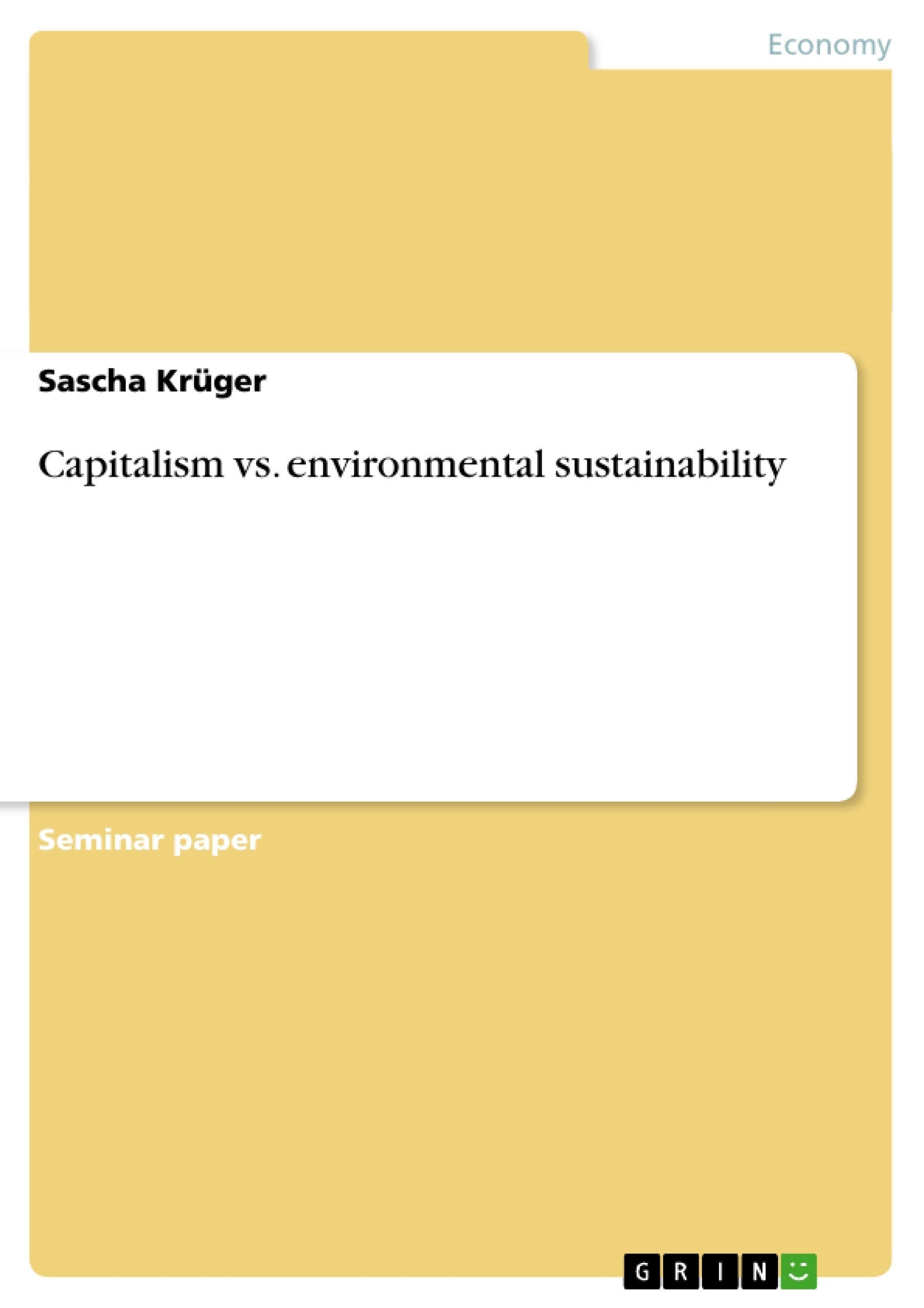Capitalism is a relatively old system. It has existed since the 15th century. It also has experienced several different developments over time. As a result, there has always been a dynamic process, which has been influenced by changes in society, policies, and technology:
Beginning with the early capitalism, culminating into the exalted capitalism, then achieving the free market economy, and these days a kind of sustainable capitalism.
This paper concentrates on the relationship between capitalism and the environment. Since the 1970’s and the 1980’s experts have debated about this particular topic. Arguments range between views that are radical, romantic, rational, right-winged, and left-winged. When people are forming their views, they overlook that the generic conflict terms, “ecology” and “economy”, are actually similar. The part “eco” originates from the Hellenic word “oikos” (meaning “house”). The parts “logy” and “nomy” descend from “logos” (meaning ”doctrine”) and “nomos” (meaning “law”). So, essentially people are talking and writing about a natural balance and operating efficiency. These are two similar goals. A company goes bankrupt when it does not meet its objects and so does the ecosystem. Although ecologists and economists often see each other very differently, they seem to have the same intentions regarding their systems. Instead of fighting against one another, they could learn from each other and realise economies (respectively ecologies) of scale.
Furthermore, this paper discusses the presumptions of capitalism in relation to answering the following question: is there a possibility for a co-existence of the environmental and the capitalistic systems? The aim is to figure out the needs for change and evolution in the existing framework. Traditional views shall be analysed and working mechanisms underlined.
Inhaltsverzeichnis (Table of Contents)
- Introduction
- Private Property
- Needs and Wants
- Market
- Competition
- Profit
- Natural Capital
- Sustainable Investment
- Conclusion
Zielsetzung und Themenschwerpunkte (Objectives and Key Themes)
This paper explores the relationship between capitalism and environmental sustainability, particularly focusing on the potential for coexistence between these two systems. It aims to analyze traditional views on this relationship, highlighting working mechanisms within the capitalist framework, and ultimately discussing the need for change and evolution to achieve environmental sustainability.
- The role of private property in promoting economic growth and its implications for environmental protection.
- The concept of needs and wants in relation to the dynamics of capitalism and global inequality.
- The impact of market forces, competition, and profit maximization on environmental sustainability.
- The potential of sustainable investment and natural capital to reconcile capitalism and environmental sustainability.
Zusammenfassung der Kapitel (Chapter Summaries)
- Introduction: This section introduces the concept of capitalism as a dynamic system that has evolved over time. It also highlights the debate surrounding the relationship between capitalism and the environment, emphasizing the need for collaboration between ecologists and economists.
- Private Property: This chapter explores the fundamental role of private property in a capitalist economy, highlighting the rights and responsibilities associated with ownership. It argues that private property can be a driving force for both economic growth and environmental protection, as individuals have a vested interest in maintaining the value of their property.
- Needs and Wants: This chapter examines the concept of needs and wants in relation to capitalist systems. It discusses the role of limited resources and unlimited desires in driving economic activity. Additionally, it highlights the issue of global inequality and the need for sustainable growth models.
Schlüsselwörter (Keywords)
The primary keywords and themes of this paper include capitalism, environmental sustainability, private property, needs and wants, market forces, competition, profit maximization, sustainable investment, and natural capital.
- Quote paper
- Sascha Krüger (Author), 2006, Capitalism vs. environmental sustainability, Munich, GRIN Verlag, https://www.grin.com/document/79166




